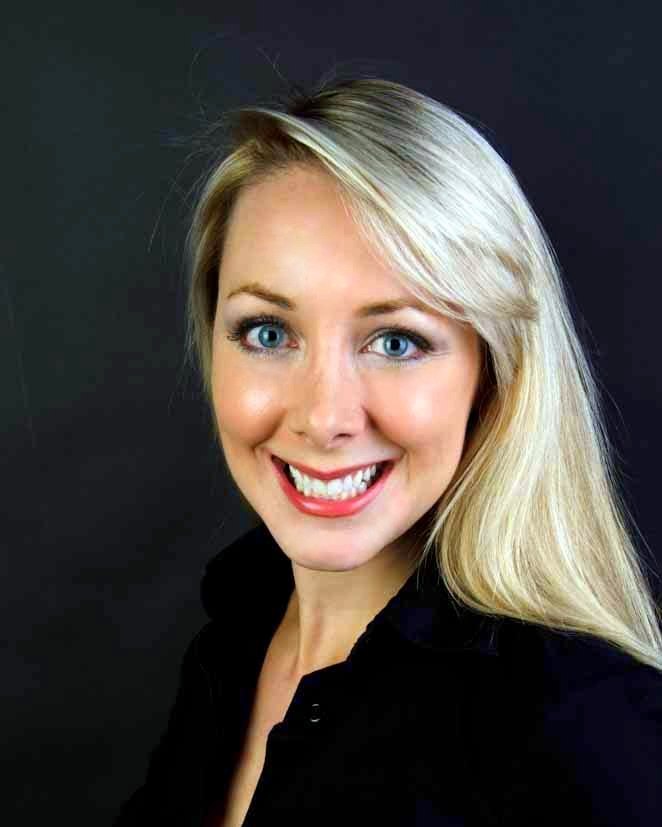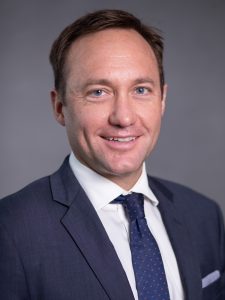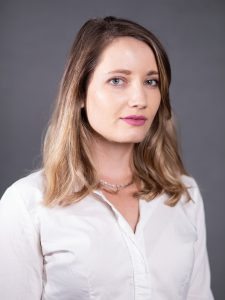Event recap
On August 21, 2020, the Atlantic Council Global Energy Center hosted Caroline Cochran, founder and chief operating officer of Oklo, as part of EnergySource Innovation Stream, an online series that highlights new energy technologies with the potential to reshape the global energy system. Cochran delivered a presentation focused on Oklo’s micro nuclear reactor, the Aurora powerhouse, and commercialization prospects for advanced nuclear technologies. Randolph Bell, Richard Morningstar chair for global energy security and director of the Atlantic Council Global Energy Center, provided introductory remarks and moderated the discussion.
Cochran began the presentation with a brief overview of Oklo, outlining the company’s goal to develop a power source that provides clean, reliable, and affordable energy while mitigating the social and environmental impacts of pollution and energy poverty. Oklo made history as the first fission company to raise modern, venture-led series A funding, submit the first-ever advanced fission combined license application to the Nuclear Regulatory Commission in 2020, and receive US Department of Energy authorization to demonstrate waste reuse.
In addressing why Oklo decided to pursue fission technology, Cochran explained the importance of using the fewest resources with the lowest levels of life-cycle emissions. This meant considering the impact of mining, raw materials, and waste disposal. Compared to large-scale solar, distributed solar photovoltaics, offshore wind, and other renewable resources, nuclear power experiences much less electricity loss between generation, transmission, and distribution. Similarly, nuclear has a much higher energy density than other renewable resources. Cochran explained that while nuclear power requires 1600 acres of land to produce twenty-six terawatt hours annually, solar requires 150,000 acres, and wind requires 250,000 acres. In addition to these benefits, Cochran shared a comparison of fuel energy density (measured in megajoules per kilogram) between sugar (nineteen), coal (twenty-four), fat (thirty-nine), gasoline (forty-six), and uranium (76,000,000), indicating the high amount of heat that can be produced from uranium compared to other fuel sources. She also explained that the amount of nuclear waste generated over the lifetime of one person’s electricity use could fit into a receptacle approximately the size of a soda can.
Pivoting to the specific technology used in Oklo’s Aurora powerhouse, Cochran gave a brief history of fast fission. Despite a stall in global nuclear technology development in the 1960s and 1970s, demonstrations of fast fission technology have shown that nuclear reactors can shut down automatically in the absence of human action and transform waste to power. The Aurora powerhouse—which relies on fast fission technology—will function at microgrid scale (meaning under twenty megawatts electric) and produce power for twenty years before refueling. Furthermore, each unit will save one million tons of carbon dioxide compared to the diesel alternative.
During the question and answer period, Cochran answered questions about the economics of “going smaller,” the expected footprint of the Aurora powerhouse, opportunities for fast fission and renewables to work together, and future plans for the company. She noted that microreactors and small modular reactors (SMRs) create opportunities for nuclear companies to benefit from economies of scale in a way that large light water reactor (LWR) projects cannot. Cochran and her team anticipate that the small, replicable reactor design, small land use footprint (at 4500 square feet), and robust waste recycling capabilities will contribute to cost savings for both the company and consumers. As utilities increasingly move away from generation toward distribution responsibilities, distributed energy systems such as SMRs, microreactors, and renewable energy technologies will become increasingly attractive. She relayed the ability of fast fission reactors to ramp power up and down very quickly, making them a more ideal source of baseload energy than LWRs to mitigate the variability of renewables. Addressing the final question regarding future plans for Oklo, Cochran responded simply that the company hopes to build a larger reactor than the Aurora (at ten megawatts compared to the Aurora’s one megawatt).
Featuring

Caroline Cochran is the co-founder and chief operating officer of Oklo Inc., a company developing advanced fission cleantech. Caroline has worked with energy technologies that span solar vehicles, natural gas, oil, and nuclear. She helped established a new technology commercialization/business development program at the University of Oklahoma which has now been operating for over a decade. She has been a founder at multiple organizations, and she was one of the youngest recipients of the University of Oklahoma Regent’s Alumni Award. Caroline is a former member of the Department of Energy Nuclear Energy Advisory Committee. Caroline received her MS in nuclear engineering from the Massachusetts Institute of Technology (MIT), a BA in economics, and a BS in mechanical engineering from the University of Oklahoma.
Related experts
Learn more about the Global Energy Center

The Global Energy Center develops and promotes pragmatic and nonpartisan policy solutions designed to advance global energy security, enhance economic opportunity, and accelerate pathways to net-zero emissions.

